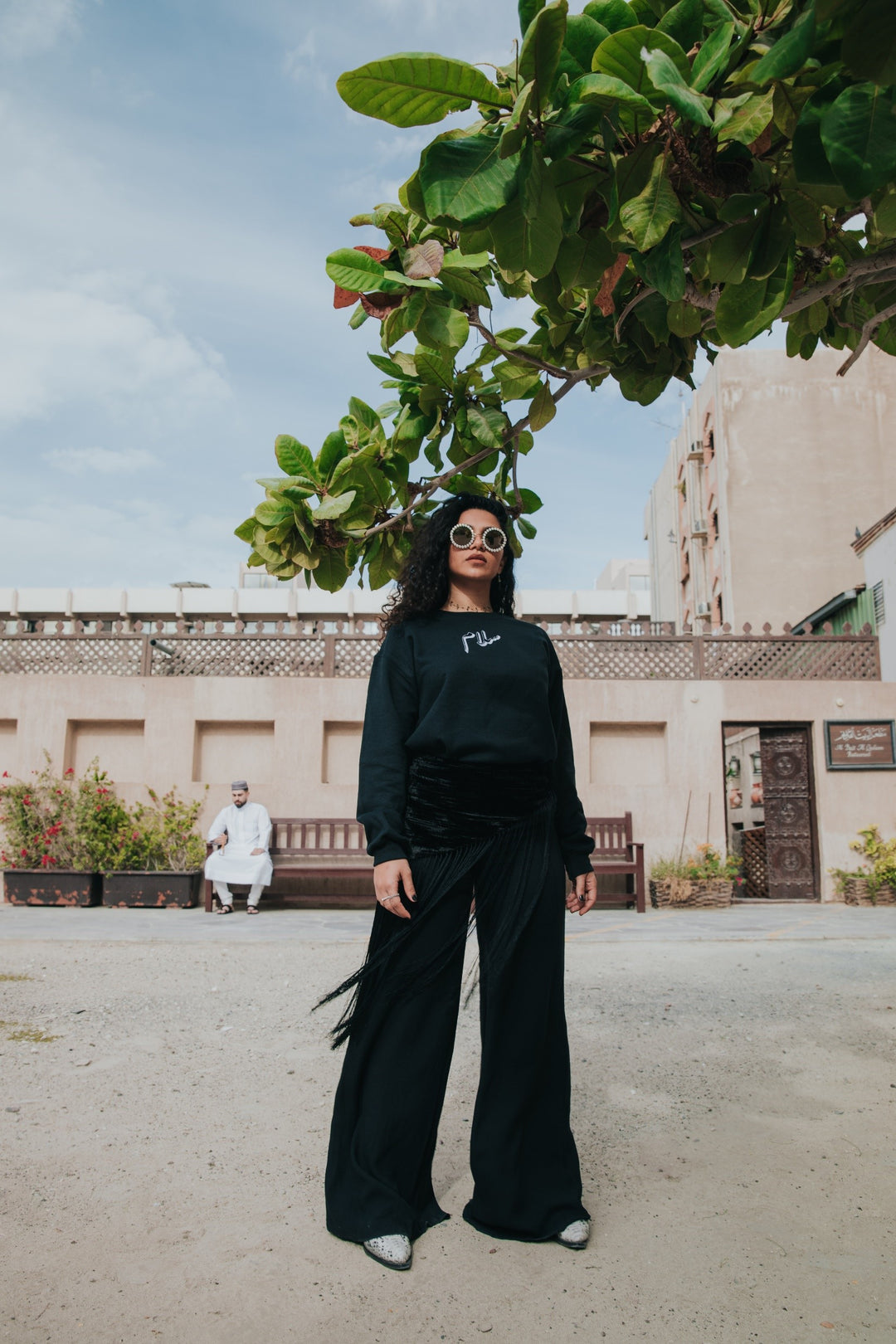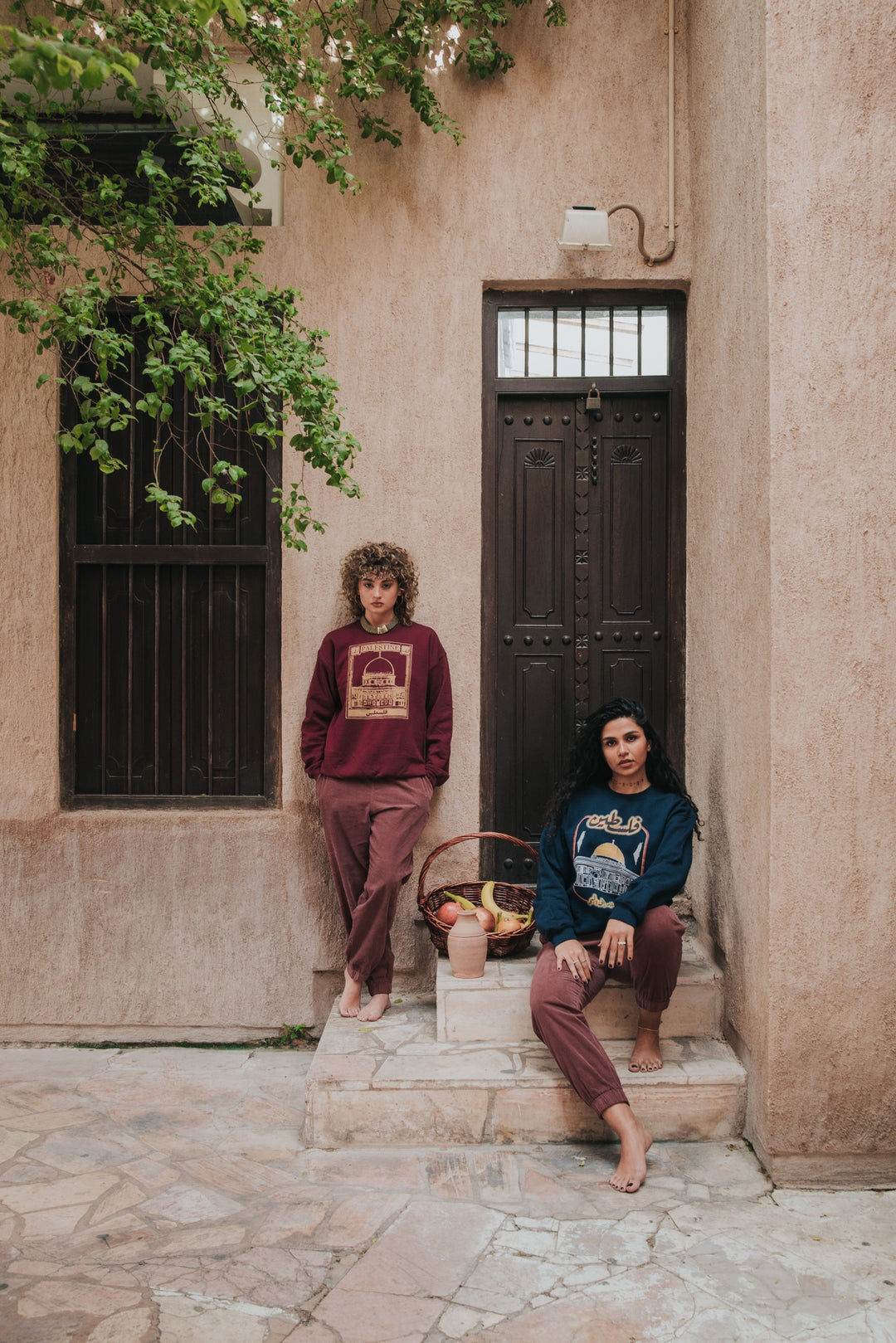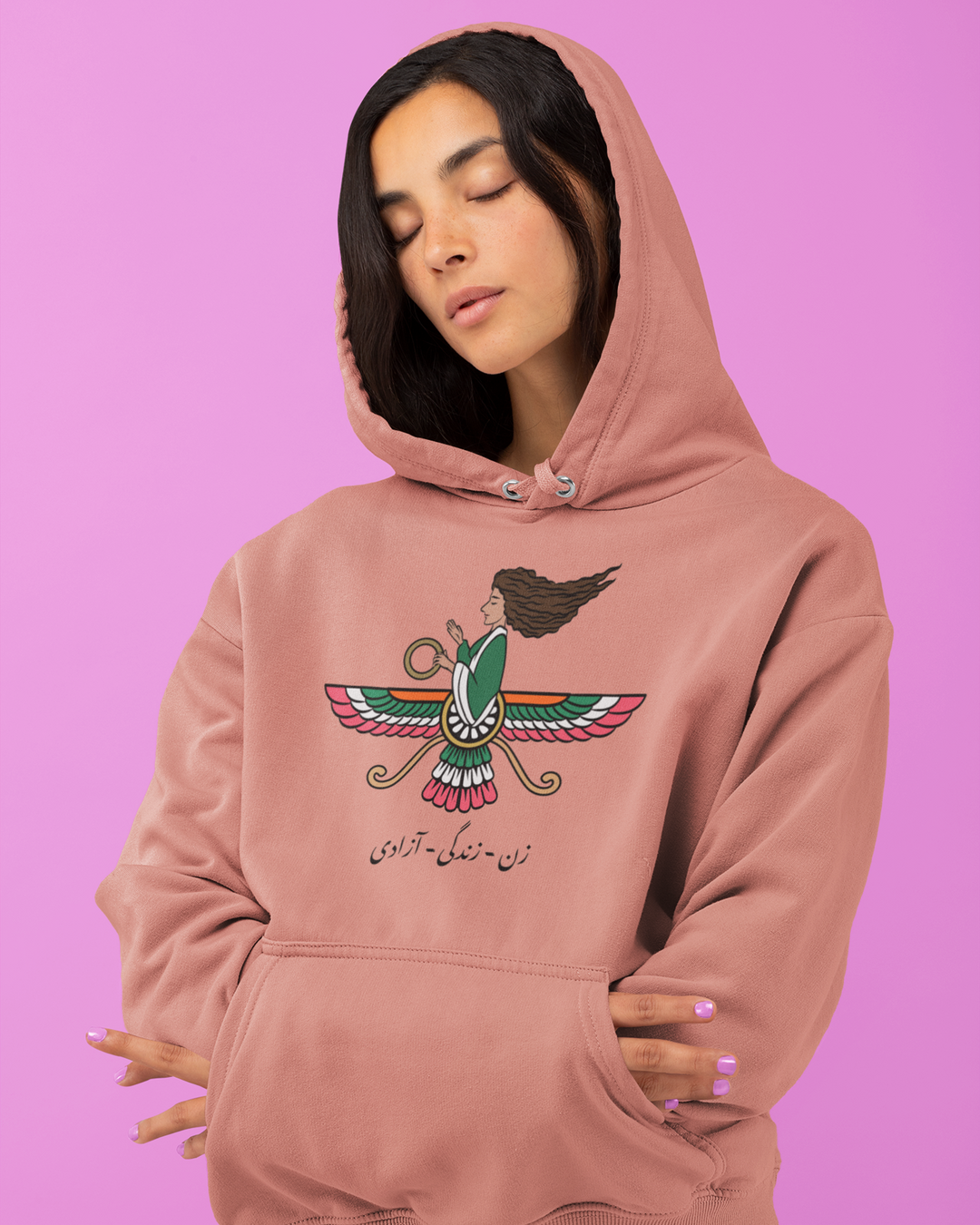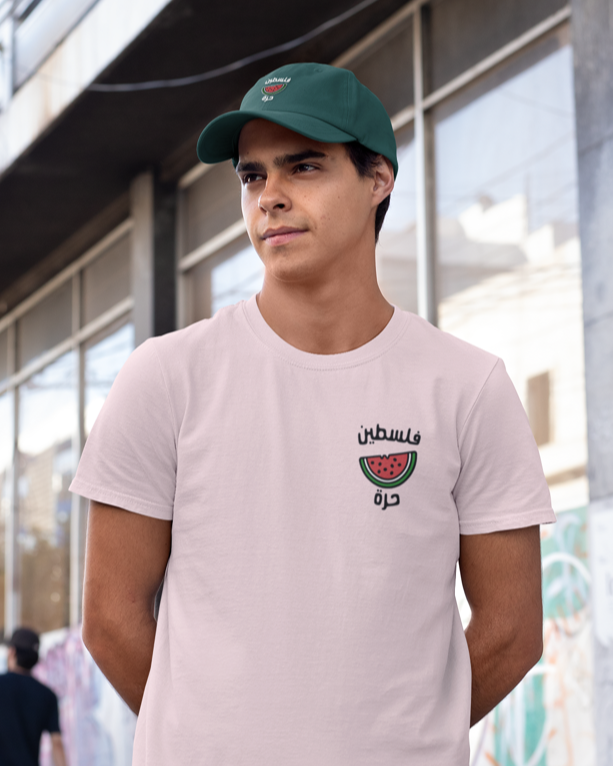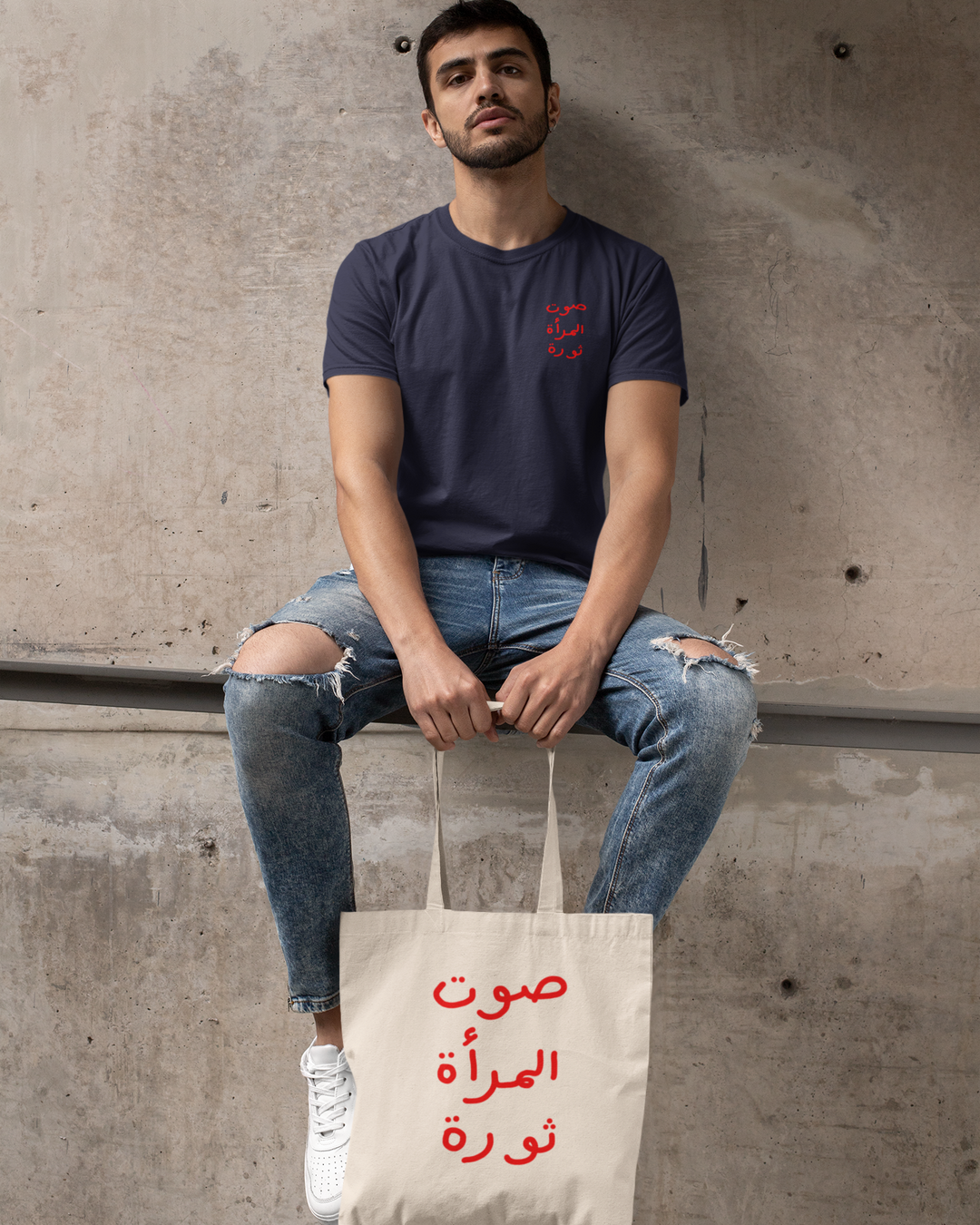You may also like
About Native Threads
We are a multifunctional lifestyle collective that celebrates the rich history and culture of the Middle East. Our unique designs are inspired by vintage Middle Eastern elements, combining them with modern fashion to create clothing that is both stylish and meaningful. At Native Threads, we believe that fashion should not only be a form of self-expression, but also a way to celebrate and preserve the traditions and heritage of the region while resonating with the experiences of those living in the diaspora.
past fundraisers
Iranian human rights
The twist on the traditional Faravahar design replaces the man with a woman and incorporates the national slogan of the ongoing Iranian Protests - زن زندگی آزادی - woman, life, freedom.
All proceeds went to the Center for Human Rights in Iran (CHRI) - an independent organization working to protect and promote human rights in Iran.
Gaza fundraising
The red, black, green, and white of the fruit —colors that match those of the Palestinian flag and the flag of the Arab Revolt—tell the story of the plight and pride of the Palestinian people throughout generations.
All proceeds went to Medical Aid for Palestinians - an NGO focused on providing medical aid to Palestinians refugees.
International Women's day
In celebration of International Women's Day, we honoured the women who played a key role in revolutions. The design is made up of the embroidered text - the women's voice is a revolution - صوت المرأة ثورة
All proceeds went to a Beirut based NGO focused on creating a safe space for women.

































